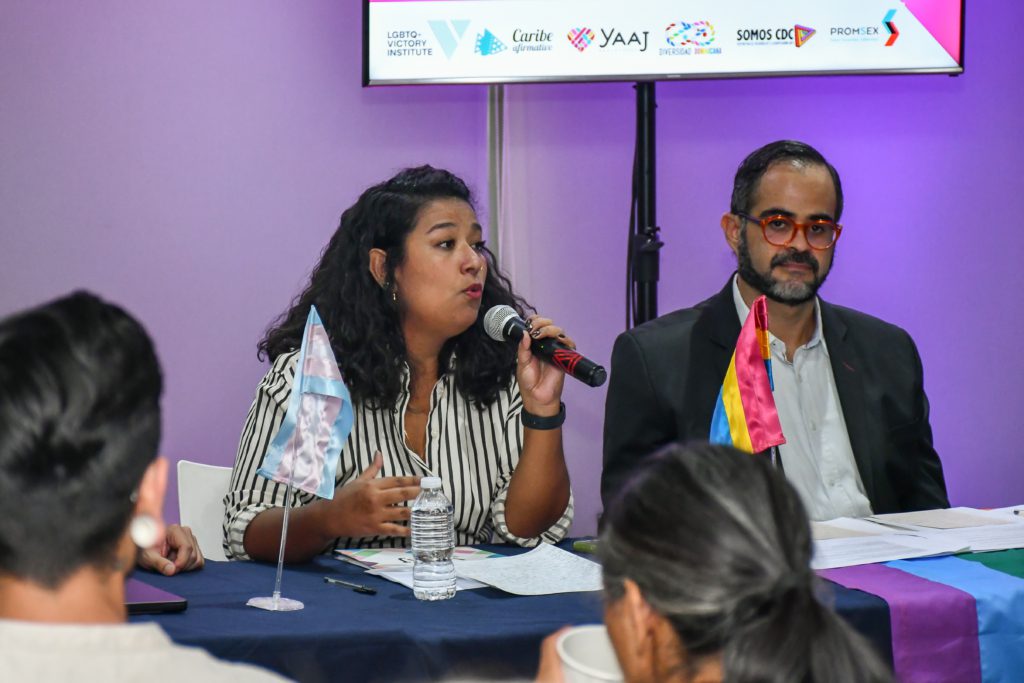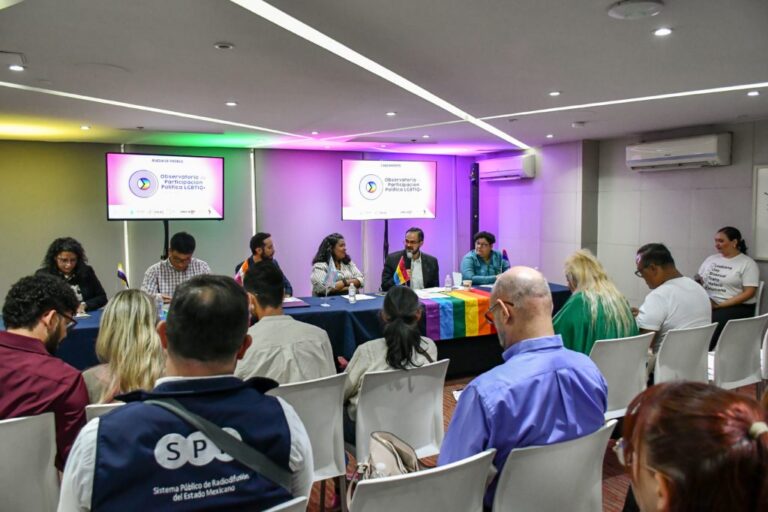Victory Institute and regional partners at the launch of the Regional Observatory on the Political Participation of LGBTIQ+ People in the Americas and the Caribbean.
LGBTIQ+ political participation is on the rise in the Americas. With elections underway in nine countries across the continent, openly LGBTIQ+ political leaders are hard at work, overcoming obstacles and using innovative tactics to boldly change the way politics is conducted in their countries.
While these advances are welcome, anti-LGBTIQ+ hatred and discrimination in politics and elections worldwide continues to rise, threatening many. Too many out candidates must grapple with the reality that giving up their right to participate in the democratic process comes with life-or-death risks. To win political victories, we must also confront the safety concerns these candidates face, and those imposed upon them by anti-LGBTQ forces.
To address these challenges, the LGBTQ+ Victory Institute, together with partners such as Caribe Afirmativo in Colombia, Yaaj Transformando tu Vida AC in Mexico, SOMOS CDC in Honduras, and Diversidad Dominicana in the Dominican Republic, established the Regional Observatory on the Political Participation of LGBTIQ+ People in the Americas and the Caribbean.


Alheri Partida, senior director of global programs, made the remarks at a press conference.
This groundbreaking initiative aims to promote, make visible and strengthen the political and civic engagement of LGBTIQ+ people in the Americas and the Caribbean. Through rigorous data collection, the Observatory will shed light on the local situation, monitor the experiences of LGBTIQ+ candidates and track cases of political violence and threats to human rights.
The Observatory’s launch coincides with important developments in the political sphere: in Mexico, affirmative action has ensured space for LGBTIQ+ people in federal and local elections. Yet tragic losses, including the murders of Osiel Baena, Samantha Fonseca and Miriam Rios, are a stark reminder of the challenges facing the community.


Osiel Baena.
Meanwhile, Colombia saw a historic surge in LGBTIQ+ participation in its 2023 local elections, with a 150% increase in candidates compared to the previous elections. The Dominican Republic has also made notable progress, with LGBTIQ+ people winning elections and driving social change.
In Peru’s last election, openly lesbian Susel Paredes received the most votes among women. Despite this progress, anti-LGBTQ, anti-democratic forces remain active in the country. A recent decree classifying transgender people as “mentally disabled” illustrates this regressive trend.
Discrimination remains deep-rooted in Honduras, but recent appointments, such as the appointment of Javier Carrington to the newly created role of inclusion policy coordinator at the federal Ministry of Social Development, mark positive steps toward political representation.
Together with our partner organizations, we aim to tell the stories of LGBTQ+ political leaders and highlight their experiences. To that end, the Observatory launched the Survey on LGBTIQ+ Political Participation in Latin America and the Caribbean in an effort to collect their stories. We invited LGBTIQ+ leaders in the region to respond to the survey, and 4,760 people from 26 countries responded.
We look forward to sharing our survey findings and the experiences of LGBTIQ+ political leaders in the Americas. Follow the Observatory’s work on our website (www.liderazgosLGBT.com) and on social media (@liderazgoslgbti). Stay informed and empowered.

